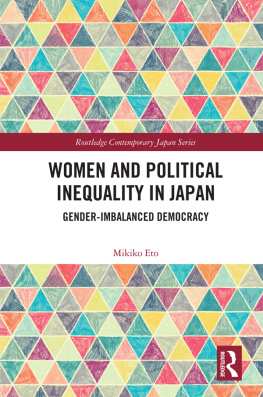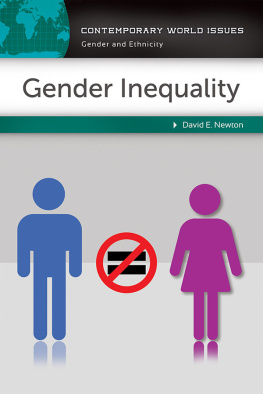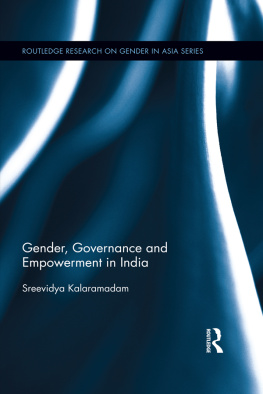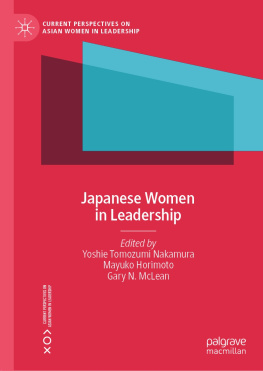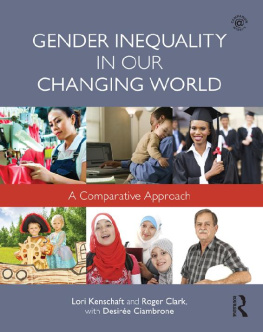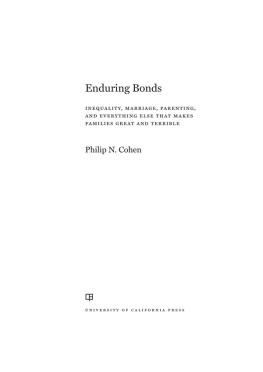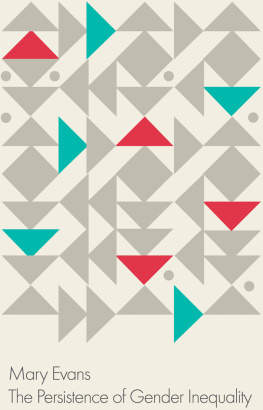Women and Political Inequality in Japan
Why are there so few Japanese women involved in the political system? In 2019, Japanese women made up 10% of the national Lower House, 21% of the Upper House, and 14% of local assemblies. According to the Inter-Parliamentary Union, this places Japan 164th out of 193 countries when it comes to womens representation in the legislature. The percentage of women in the Lower House has only increased by fewer than two percentage points since women gained full suffrage and the right to stand for election in Japan in 1946. Eto analyzes the various factors that have led to womens low presence in the Japanese legislature. She evaluates ways in which it might be possible for Japan to catch up and, in doing so, examines how Japanese society continues to perpetuate gender-rigid expectations of people.
This text is a valuable study for scholars of Japanese politics and society, and for readers with an interest in the broader issue of the representation of women in politics.
Mikiko Eto is Professor of Political Science at Hosei University, Japan.
Routledge Contemporary Japan Series
Cultural and Social Division in Contemporary Japan
Bridging social division
Edited by Yoshikazu Shiobara, Kohei Kawabata and Joel Matthews
Locating Heisei in Japanese Fiction and Film
The historical imagination of the lost decades
Marc Yamada
Masculinity and Body Weight in Japan
Grappling with metabolic syndrome
Genaro Castro-Vzquez
New Frontiers in Japanese Studies
Edited by Akihiro Ogawa and Philip Seaton
Social Change in Japan, 19892019
Social status, social consciousness, attitudes and values
Edited by Carola Hommerich, Naoki Sudo and Toru Kikkawa
Avant-Garde and Nondominant Thought in Postwar Japan
Image, matter, and separation
Kenichi Yoshida
Wildlife, Landscape Use and Society
Regional case studies in Japan
Ken Sugimura
Women and Political Inequality in Japan
Gender-imbalanced democracy
Mikiko Eto
For more information about this series, please visit: www.routledge.com/Routledge-Contemporary-Japan-Series/book-series/SE0002
Women and Political Inequality in Japan
Gender-Imbalanced Democracy
Mikiko Eto
First published 2021
by Routledge
2 Park Square, Milton Park, Abingdon, Oxon OX14 4RN
and by Routledge
52 Vanderbilt Avenue, New York, NY 10017
Routledge is an imprint of the Taylor & Francis Group, an informa business
2021 Mikiko Eto
The right of Mikiko Eto to be identified as author of this work has been asserted by her in accordance with sections 77 and 78 of the Copyright, Designs and Patents Act 1988.
All rights reserved. No part of this book may be reprinted or reproduced or utilised in any form or by any electronic, mechanical, or other means, now known or hereafter invented, including photocopying and recording, or in any information storage or retrieval system, without permission in writing from the publishers.
Trademark notice: Product or corporate names may be trademarks or registered trademarks, and are used only for identification and explanation without intent to infringe.
British Library Cataloguing in Publication Data
A catalogue record for this book is available from the British Library
Library of Congress Cataloging in Publication Data
Names: Eto, Mikiko, author.
Title: Women and political inequality in Japan : gender-imbalanced democracy / Mikiko Eto.
Description: First Edition. | New York : Routledge, 2020. |
Series: Routledge contemporary Japan series | Includes bibliographical references and index. | Identifiers: LCCN 2020029593 (print) |
LCCN 2020029594 (ebook) | ISBN 9780367522094 (hardback) |
ISBN 9781003056911 (ebook)
Subjects: LCSH: WomenPolitical activityJapan. |
Politics and cultureJapan. | Womens rightsJapan.
Classification: LCC HQ1236.5.J3 E86 2020 (print) |
LCC HQ1236.5.J3 (ebook) | DDC 320.082/0952dc23
LC record available at https://lccn.loc.gov/2020029593
LC ebook record available at https://lccn.loc.gov/2020029594
ISBN: 978-0-367-52209-4 (hbk)
ISBN: 978-1-003-05691-1 (ebk)
Typeset in Galliard
by Newgen Publishing UK
To Drude Dahlerup and Diane Sainsbury
Contents
This book has come out of the research on women and politics in Japan that I have conducted over the past 15 years. I started the study by being inspired by Drude Dahlerups work on gender quotas. At a panel of the 20th World Congress of the International Political Science Association, held in Fukuoka, Japan, in July 2006, in which I participated, Pippa Norris raised a question of why the legislative representation of Japanese women was left so far behind internationally in spite of the countrys socio-economic advancement, which prompted me to inquire about the reasons for the underrepresentation of Japanese women. The initial result of my inquiry was an article, titled Women and Representation in Japan: The Causes of Political Inequality, published in the International Feminist Journal of Politics (vol. 12, issue 2) in 2010. The present book develops from this articles framework and ideas.
While I continued to study womens legislative representation, I extended the scope of my research to wider issues, such as gender in democracy, gender and civil society, and gendered political culture. Studying these issues has significantly enriched my discussion in this book. Some portions of my published papers related to these issues have been incorporated into this book. , I refer to my previous work on Japanese social welfare (Eto 2001, 2000). In using these published papers, I modified them to fit the book.
My research has owed greatly to many senior scholars, colleagues, and friends. The members of the political science department at the University of Stockholm, above all, provided me with kind support and academic stimulus for my doctoral studies that motivated me to publish this book. I would like to extend my special thanks to Drude Dahlerup, Henrik Berglun, Diane Sainsbury, Kristina Borus, Ludvig Beckman, Maria Wendt, Ulf Mrkenstam, Maria Jansson, Tommy Mller, Naima Chahboun, Livia Johannesson, Magnus Lundgren, and Lena Helldner. I am also grateful to Monique Leyenaar, Lena Wngnerud, and Bjrn Jerdn who acted as examiners of my dissertation. Monique Leyenaar, the chief examiner, made it clear what flaws in my thesis needed to be corrected. I would also like to express my appreciation to Sven Oskarsson who taught me statistics, to Akihiro Ogawa for inviting me to a Japanese study circle in Stockholm, and to Anna Nycander for arranging my scholarship from the Royal Swedish Academy of Sciences. Among them, Drude Dahlerup and Diane Sainsbury were my mentors, on whom I leaned immensely in conducting research on important issues in feminist political studies.
Other than the University of Stockholm, the Nordic Institute of Asian Studies (NIAS) helped me considerably for my research. I had the pleasure of visiting there as a guest scholar several times from 2004 to 2013. NIAS gave me opportunities to discuss my subject with a wider audience of Asian scholars as well as those of Nordic countries. During my stay at NIAS, I made a friendship with Cecilia Milwertz. Cecilia has taught me in many ways how to think as a feminist scholar, how to write logically in English, and how to live my life feeling calm.


